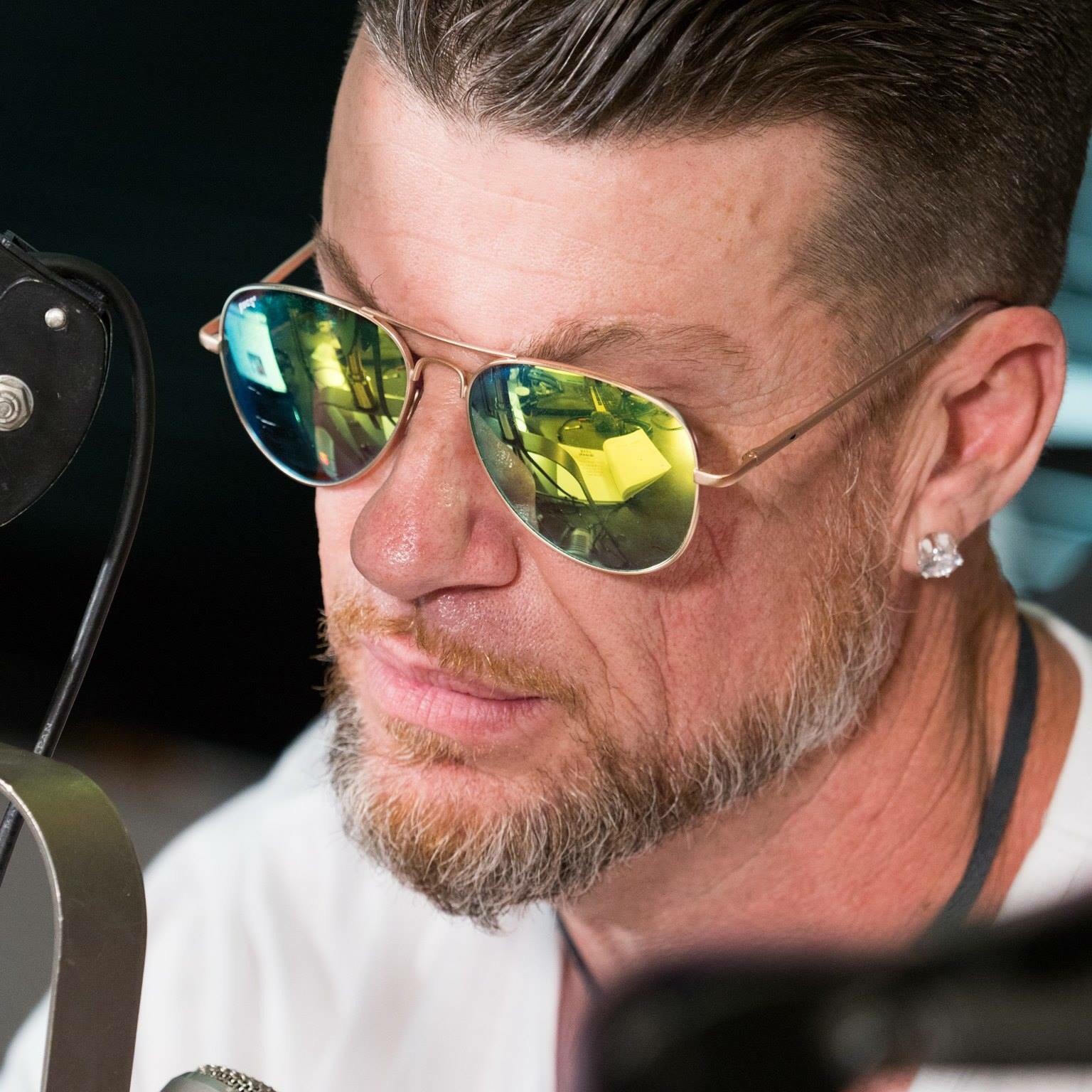Michael Molthan and Terry Bentley Hill may seem unlikely partners in the work of education and awareness, but they are united by one idea:
Stop minding your own business.

Photo courtesy of Terry Bentley Hill.
Terry is a top criminal defense attorney in Dallas. She is also a suicide survivor. In 1995 depression, alcoholism, and suicide took the life of her first husband. Nine years later, her 14-year old daughter Hallie was taken by depression and suicide. Terry’s life was drastically altered by these great losses, but in response she has committed her life and career to help those suffering with mental illnesses and addiction.
Terry sat down in a radio studio overlooking Galleria Dallas. Next to her is Michael Molthan, host of M2 the Rock Radio, a weeknight show produced by iHeart Media. “Sometimes we end up on a journey we never expected,” she says with a smile. This radio show is certainly different than most, with deep discussions about drug and alcohol dependence, recovery, faith, and what it means to pay it forward.
These are all lessons that Michael Molthan learned while in prison. Alcohol and drug addiction caused his life to spiral out of control, taking his successful home building business, his marriage, and his children. Michael took his first drink at ten years old, and by May of 2017, he had racked up 27 arrests. His last arrest took him from the courtroom of Judge Jennifer Bennett in Dallas to Henderson County where he served time until October 13, 2017. “It was Friday the 13th – and NOTHING happens in prison on Fridays,” said Michael as he shared his story. “They handed me papers that said I was released and they kicked me out of jail, 150 miles from Dallas. I had nothing except the clothes I had been arrested in.” But it was during those four months in prison, Michael truly found freedom. He began reading the Bible, studying with fellow inmates, and even speaking each day after dinner about the hope he had found.

Photo courtesy of M2 The Rock.
Standing outside the prison on October 13th, Michael didn’t know what to do, so he prayed. He felt God tell him to start walking, so he walked more than ten miles to the parole office. Surprised to see him there, his parole officer called Judge Bennett and arranged a bus ticket so Michael could appear in her court that coming Monday morning. When he appeared in court, Judge Bennett said she had caught wind of his transformation and if he was willing to get into recovery and present his self-correction plan, he would not need to return to prison. “I told her that I would do whatever she told me to do. And I did,” Michael said.
Surprised by his sudden release and not knowing where to turn, Michael ended up at his father’s home in Dallas. “My dad said something about this guy, Brian Glenn, who had a radio show and he wanted to interview me and find out why I suddenly disappeared from the home building business,” explained Michael. He appeared on the radio show just days later, sharing his whole story. And when Brian asked when all of this had happened Michael told him the truth – “last Friday.” That radio interview led to meetings with the Vice President at iHeart media, where Michael was given his own weeknight show where he could talk openly about the hurts, habits, and hang ups people are facing. The show is also broadcast on Facebook Live, with questions and comments being answered live on the air.
Terry has joined Michael for several episodes this fall, covering the topic of suicide and mental health. The two met at a fundraising event for the Suicide and Crisis Center of North Texas and quickly bonded over their experiences with addiction. On the show, Terry and Michael specifically shared stories and advice about how the holidays affect those who struggle with alcohol dependency and depression. “We’ve got to save lives, and that means being transparent with the details of this disease,” Terry said. “It is a family disease, but we are trapped in the shame and secrecy, and it is time to start asking real questions and stop minding our business.”

Photo by Mary Martin.
During the show, Michael asked Terry how you should respond if someone says, “I don’t want to live anymore,” and she gave three steps to keep in mind:
1. Take it seriously
2. Express love
3. Ask direct questions like “Do you have a plan?”
Terry shared from her own story live on the air, talking about how, in retrospect, she could see red flags in her husband’s journey, but didn’t know what to do. Now she is determined to help other people recognize the signals that can save a life. Michael spoke directly to those who are facing addiction, “You need to get honest with people. ‘I’m sad. I’m hopeless. Why do I feel this way?’ We are in this together and need community.”
data-animation-override>
“On average, one person dies by suicide every three hours in Texas.”
Michael and Terry’s community stretches far beyond the radio studio. When the microphones are off, Terry returns to her legal work where she is focused on guiding people into recovery rather than incarceration. She also serves on the board of the Suicide Crisis Center of North Texas, advocating for survivor care and greater intervention awareness. Michael began his own nonprofit organization, the M2381 Foundation, which shares his message of recovery, directly funds outreach, and helps addicts looking for treatment. “Three times a month I’m back in Judge Bennett’s court room, sharing my story and embracing gratitude – I don’t want to forget,” said Michael.
Both Terry and Michael are honest about how hard the holidays can be for those who are in recovery or surviving a loss, covering topics from drinking at holiday parties to hanging stockings for those who have passed. But every story ends in hope. “I often say that God redeems all he allows,” Terry said with conviction. Together, Michael and Terry’s stories of redemption are creating light and purpose in the midst of suffering.
If you are in crisis or have suicidal thoughts, please call the suicide crisis hotline at 214-828-1000. You can also text “CONNECT” to 741741 anytime to reach trained, caring volunteers at the National Crisis Text Line.
If you know someone who is Doing Good in Dallas, we’d love to hear about it! Share their story with us.
Story by Mary Martin.